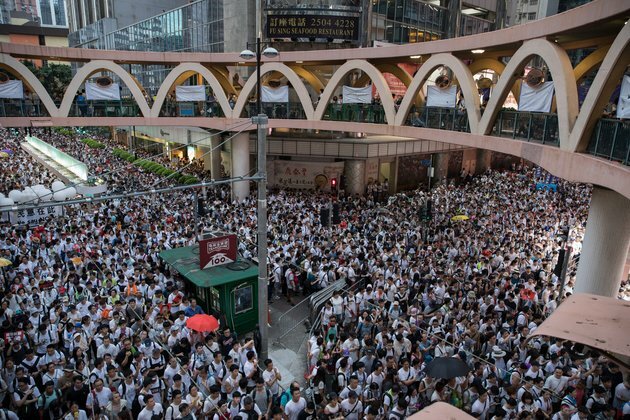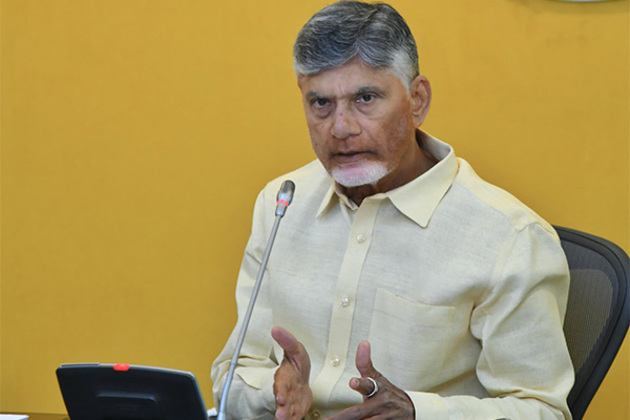How a cyber attack hampered Hong Kong protesters
The Conversation
14 Jun 2019, 11:47 GMT+10

Massive public protests taking place in Hong Kong over the past week are aimed at a new extradition law, known as the Fugitive Offenders Ordinance, that would see accused criminals extradited to mainland China to face prosecution.
Hongkongers feel the law could be used to legalise the kidnapping of people who express views, and act in ways, that are not popular with the Chinese government. The same law could also be used to extradite tourists and visitors to China who are arrested on suspicion of having committed these crimes.
Protesters want the bill scrapped. For now, debate of the legislation has been postponed.
Organisers say one million people turned out for the protests, while police estimate the number was around 240,000. Either way, it was a significant number of Hong Kong's 7.5 million population. Commentators on Twitter remarked on how well organised the protesters were.
So, how did they do it?
Protesters across the world are using new technologies to organise. Social media platforms were used to share information about the Hong Kong protests. And messaging apps, such as Telegram and WhatsApp, were essential for coordinating with other protesters.
Read more: Beyond hashtags: how a new wave of digital activists is changing society
Telegram as a protest tool
In choosing a messaging app, organisers are looking to communicate effectively while avoiding surveillance. Telegram, which launched in 2013, has become a more secure competitor to WhatsApp.
Telegram says it has standard end-to-end encryption for its chats, to prevent spying on the contents of communications.
There is the "cloud chats" option for group messaging. Telegram also allows for "secret chats" between two people. These chats are stored on the phones rather than in the cloud, and can be set to self-destruct at a time determined by the user.
Unlike WhatsApp, Telegram hasn't suffered major hacks in the recent past. Earlier this year, WhatsApp was reportedly infected with the Pegasus spyware as part of an attempt to access the messages of a UK-based human rights lawyer who was working on a case for civil rights activists. During the 2014 protests, WhatsApp was also reportedly attacked to spy on Hongkongers.
Telegram is a partially open source platform. Anyone can contribute to strengthening its security by looking for and fixing vulnerabilities, which can help to prevent hacks like those from Pegasus.
Telegram therefore offered Hongkongers a messaging service they could use with a bit more confidence, or so the organisers thought. But the use of spyware isn't the only method available to those who might want to disrupt the communications of protesters.
Read more: Shutting down social media does not reduce violence, but rather fuels it
Telegram becomes a target
The administrator of a 30,000-member Telegram chat group, which was used to organise the protests, was arrested on Tuesday. Ivan Ip, 22, was accused of conspiring to commit a public nuisance. Ip told the New York Times:
In a further show of force, Telegram was also targeted in a distributed denial-of-service (DDoS) attack during the protests.
DDoS attacks use botnets, which are computers that have been compromised by malicious software and then used to launch cyber attacks in an automated fashion. The owner of the computer may not even know that their property was used as a tool to suppress civil rights activists.
Telegram's servers were flooded with junk communications at rate of 200-400 gigabits per second, slowing functioning of the service until it was ineffective or unusable.
Based on past trends, this size of an attack is likely to have been carried out by a state actor. Telegram founder and CEO Pavel Durov said source IP addresses indicated the geographic location of the attacks were mainly originating in China.
This disruption appears to have been coordinated to occur at the height of the protests for maximum impact, creating a chilling effect on the ability of protesters to organise and communicate.
The effect of the attack was global, impacting Telegram users in other countries like the United States. This shows how targeted internet censorship techniques in one country could punish citizens of another.
Read more: From billboards to Twitter, why the aesthetics of protest matters more today
Forcing protesters into a corner
By making Telegram unusable, the cyber attack redirects the communications of organisers onto less secure platforms, where vulnerabilities can be exploited.
Communications on these platforms might be more easily intercepted, and metadata and location information might be available from telecommunications companies and ISPs. This can heighten protesters' fears of being identified and prosecuted for their political actions.
The power of governments to attack and disrupt the communications of protesting citizens has a chilling effect on the universal right to march and to protest. Social media hacking tools, which are sold to repressive governments to spy on their own citizens, further erode the right to free speech and to organise political activity.
In this environment, demand for secure social media apps will only increase out of a basic necessity to break free from surveillance, and for protection against authoritative regimes around the world.
Author: Stanley Shanapinda - Research Fellow, La Trobe University 
 Share
Share
 Tweet
Tweet
 Share
Share
 Flip
Flip
 Email
Email
Watch latest videos
Subscribe and Follow
Get a daily dose of International Technology news through our daily email, its complimentary and keeps you fully up to date with world and business news as well.
News RELEASES
Publish news of your business, community or sports group, personnel appointments, major event and more by submitting a news release to International Technology.
More InformationComputers
SectionJudge allows Delta to proceed with CrowdStrike lawsuit
ATLANTA, Georgia: A judge in Georgia has ruled that Delta Air Lines can continue most of its lawsuit against the cybersecurity company...
Huawei unveils first HarmonyOS laptops to cut US tech dependence
BEIJING, China: Huawei has launched its first laptops running on its proprietary HarmonyOS, marking a significant step in its effort...
Trump administration probes Apple-Alibaba AI deal over security fears
WASHINGTON, D.C.: The Trump administration is scrutinizing Apple's plans to partner with Chinese tech giant Alibaba to bring its artificial...
Google hits 150 million users for subscription service with AI help
SAN FRANCISCO, California: Google One, Alphabet's subscription service that offers cloud storage and AI-powered features, has surpassed...
Xinhua Headlines: Beyond expo floor: how China contributes to future of global trade
* As global trade faces mounting headwinds -- from U.S. tariffs to supply chain fragmentation -- international businesses are making...
Stage is set for northeast Indian states to rise with Rs 4.3 lakh crore investment proposals
New Delhi [India], May 25 (ANI): The very first edition of 'Rising North East Investors Summit 2025', organised by the central government...
Internet
SectionIreland urged to boost tech sector amid job decline
DUBLIN, Ireland: The number of people employed in social media companies in Ireland has dropped by 11 percent since 2022, according...
Judge allows Delta to proceed with CrowdStrike lawsuit
ATLANTA, Georgia: A judge in Georgia has ruled that Delta Air Lines can continue most of its lawsuit against the cybersecurity company...
Trump administration probes Apple-Alibaba AI deal over security fears
WASHINGTON, D.C.: The Trump administration is scrutinizing Apple's plans to partner with Chinese tech giant Alibaba to bring its artificial...
Google hits 150 million users for subscription service with AI help
SAN FRANCISCO, California: Google One, Alphabet's subscription service that offers cloud storage and AI-powered features, has surpassed...
"All states must join forces to achieve goal of Viksit Bharat 2047": Andhra CM Chandrababu Naidu
Amravati (Andhra Pradesh) [India], May 25 (ANI): As India surpassed Japan to become the fourth-largest economy in terms of nominal...
"Politics and personal life are different": Tejashwi Yadav backs expulsion of brother Tej Pratap
Kolkata (West Bengal) [India], May 25 (ANI): Rashtriya Janata Dal leader and Leader of Opposition in Bihar Assembly,Tejashwi Yadav,...










